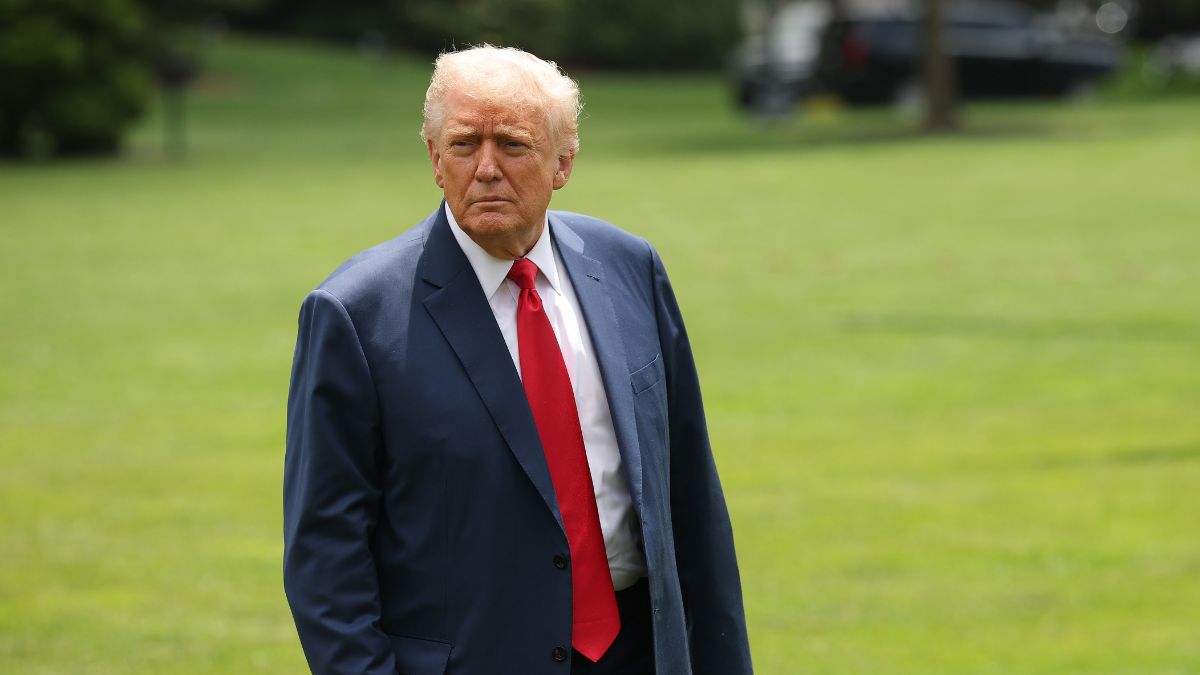
Despite a strong stock market and mostly positive economic signs, a widespread feeling of worry is taking hold in corporate boardrooms all over the United States. Goldman Sachs, in an unusual acknowledgment, has pointed out the increasing concerns of CEOs due to the Trump administration’s unpredictable economic policies, especially its large tax bill and ongoing trade talks.
The investment banking firm suggests these worries are causing a slowdown in investment and could harm future economic growth. The year started with clear optimism among business leaders, driven by hopes of fewer regulations and tax cuts. However, this early excitement faded quickly as the administration pushed aggressively for trade policies that protect U.S. industries, unsettling global supply chains and creating doubt about future trade relationships.
As reported by Politco, these changes led many companies to rethink their spending plans. Goldman Sachs told Politco, At the moment, there’s a sense that things are moving forward constructively, people would like the level of certainty around the policy direction to continue to increase.
Investment groups may be hurting thanks to Trump
Many have had to delay their plans. This hesitation in making investment decisions is expected to hurt economic growth in 2025. While Solomon notes that the administration’s recent trade language has seemed less aggressive, uncertainty remains. Businesses want more predictability and clear policy direction to feel confident and move forward with delayed investments.
The unpredictable nature of the administration’s trade maneuvers has sent shockwaves through supply chains. This is despite Wall Street noting a fresh surge of optimism following a court’s move to overturn major Trump tariffs.
Interestingly, Goldman Sachs’ own deal activity has stayed surprisingly strong despite the uncertainty. The total number of mergers and acquisitions has gone up. The firm explains this resilience by pointing to a backlog of strategic deals that were postponed due to strict regulations under the previous administration. Now, CEOs seem more confident that they have flexibility, which has encouraged them to move forward with these deals.
This positive trend is balanced by ongoing worries about regulations. The Federal Trade Commission’s decision to keep stricter merger rules from the last administration is causing concern. Along with political risks coming from Washington, these factors make corporate strategy more complicated and require careful handling. And it’s not only investors who’ve pulled back; international business travel to the U.S. has slumped sharply amid growing concerns over Washington’s unpredictable policy tone.
The proposed tax bill, which the administration calls the “big, beautiful bill,” is another major source of anxiety. While the idea of making the current tax system permanent is generally supported, the bill’s long-term effect on the country’s finances, especially the national debt and deficit, is still a key topic of debate. Goldman Sachs notes the absence of a clear plan to lower debt and deficit levels, raising fears that these issues could eventually limit investment and slow economic growth.
Certain parts of the tax bill, like Section 899, are adding to the frustration. This section, which aims to increase taxes on foreign individuals linked to “discriminatory foreign countries,” could discourage foreign investment in the U.S. The investment bank hopes lawmakers will consider the possible negative effects.
 US Stocks Weaken
US Stocks Weaken